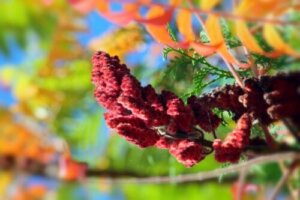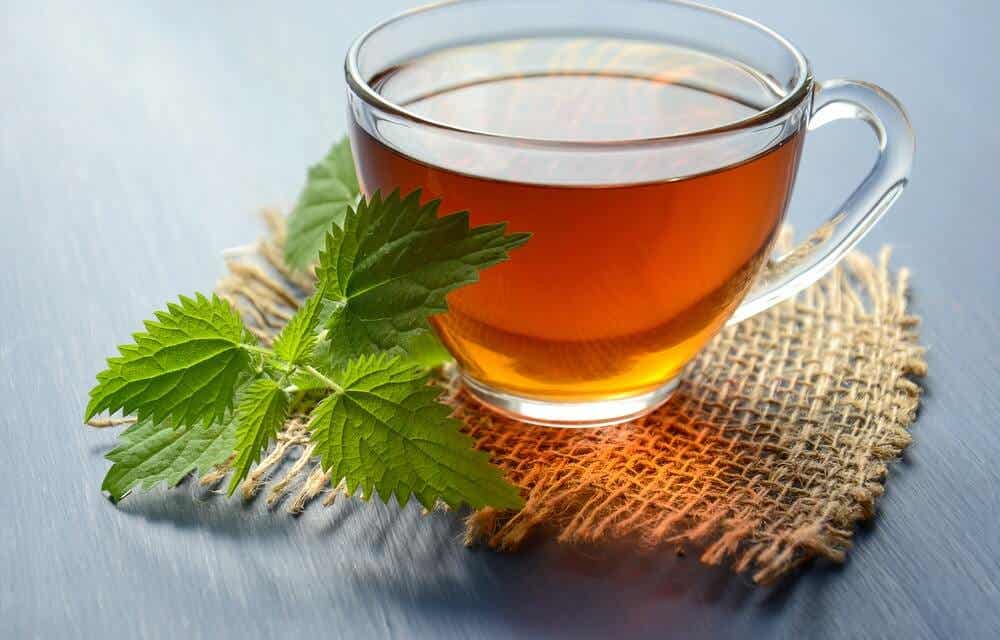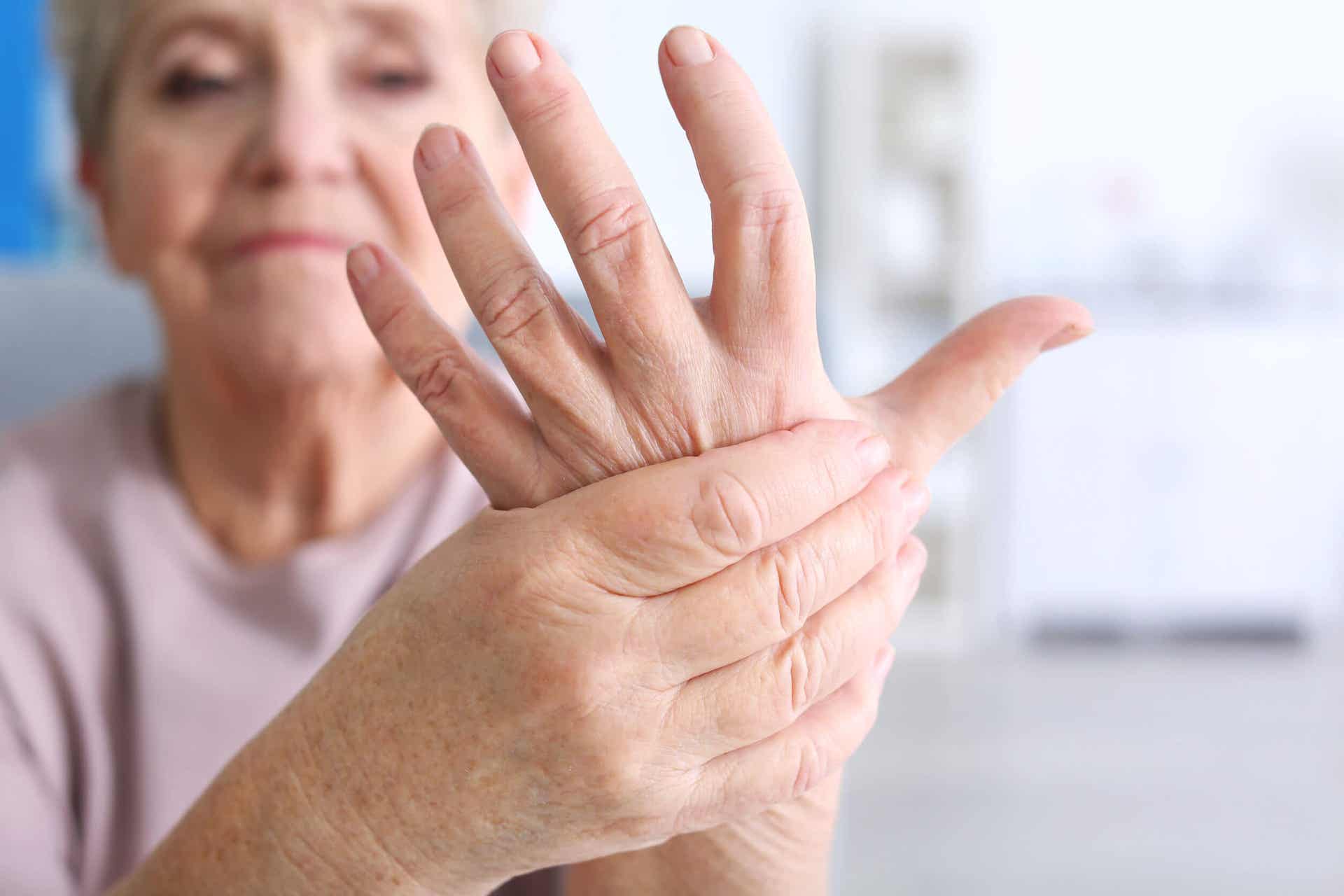Carmine Herb: Properties, Uses, and Contraindications


Reviewed and approved by the pharmacist Franciele Rohor de Souza
The carmine herb, also known as pokeweed (Phytolacca americana), is a herbaceous plant found in various parts of North America, South America, Europe, and Asia. It’s also known as “American blackberry herb” or “cancer root,” and has been used for medicinal and culinary purposes.
Despite this, specialists determined that some parts of the shrub have toxic components, which are only eliminated through a rigorous cooking process. Therefore, we must use it with caution and previously consider its possible side effects.
To learn more about it, just keep reading!
The properties of the carmine herb
According to historical data, the carmine herb was the basis of remedies used by Native Americans to promote vomiting, purge the body and combat the symptoms of rheumatism. Even to this day, some cultures continue to give it these applications.
Apparently, its popularity dates back to a book called King’s American Dispensary, written in the late 19th century, which speaks of the plant’s potential to treat skin diseases and joint pain. Even so, at present, the evidence is quite limited. What do we really know about it?
Discover: 4 Herbs to Speed Up the Healing of Styes
Carmine herb compounds

Sources such as “Germplasm Resources Information Network (GRIN)” and “Chinese herbal medicine. Materia medica” state that the herb carmine has a wide variety of chemical compounds with pharmacological potential. The most prominent constituents are the following:
- Phytolaccoside A, B, C, D, E, F, G
- Phytolaccagenin
- Jaligonic acid, phytolaccagenic acid, and oleanolic acid
- Triterpene alcohols: α-spinasterol, α-spinasterol-β- D glycoside, 6-palmitoyl-Δ7-stigmasterol-Δ- D glycoside, 6-palmytytyl spinasteryl-6- D glycoside
- Astragalin
- Lectins
- Tannins
- Starch
- PAP-R protein
Now, people have claimed a wide variety of health properties, but there aren’t reliable clinical trials evaluating its effectiveness. In any case, some say it has antirheumatic, antitumor, anti-inflammatory, analgesic, and emetic activity.
Potential benefits and uses of the carmine herb
Despite information about the toxicity of pokeweed, some cultures continue to advocate its use as an adjuvant against diseases such as tonsillitis, laryngitis, acne, scabies, some types of tumors, and AIDS. Is there any evidence for this?
For now, the plant has exhibited some medicinal benefits in laboratory and animal studies. However, studies of its effects on humans are lacking. In addition, it’s believed that the antiviral protein pokeweed (PAP) is responsible for many of its properties. Even so, there isn’t total certainty.
1. Oral diseases
Scientists have researched Phytolacca americana extracts as possible supplements to prevent dental diseases. In particular, a laboratory study reported in BMC Complementary Medicine and Therapies found that the plant has antibacterial components that help support oral health.
Specifically, it inhibits important enzymes in bacteria such as Porphyromonas gingivalis and Streptococcus mutans, responsible for inflammatory periodontal diseases and dental caries. However, scientists need more evidence.
2. Tonsillitis
A wide variety of homeopathic remedies to soothe the symptoms of tonsillitis contain traces of carmine herb.
Some believe that, in conjunction with other natural ingredients, it lubricates the mucous membrane of the throat and decreases pain and inflammation. However, there aren’t any clinical trials to prove this.
3. Skin disorders
Undoubtedly, one of the main applications of carmine herb has to do with skin disorders. In folk medicine, people use it as an ally against psoriasis, eczema, and tuberculosis of the neck.
Its anti-inflammatory properties would be responsible for reducing swelling and pain in these conditions.
However, paradoxically, direct contact with the root, stem, or leaves of the plant can cause blistering rashes similar to those of poison ivy. You should therefore use it with caution. However, studies on this subject are rather poor and outdated.
4. Cancerous tumors and AIDS
Neither carmine herb nor other herbal supplements can cure chronic conditions such as cancer or HIV/AIDS. Despite popular claims of its benefits and the conclusions of some clinical trials, you shouldn’t use it as a treatment for these diseases.
Right now, evidence suggests that extracts from the plant hold promise for designing future drugs to support the treatment of these conditions. For example, a study reported in Phytotherapy Research determined that Phytolacca americana extracts can act against colon cancer cells by modifying gene expression.
Meanwhile, the journal Toxins reported that PAP – present in the carmine herb – has the potential to become an immunotoxin. In other words, it could stimulate the activity of immune cells to respond to the presence of tumors or cells.
5. Other unproven uses

Much of the medicinal applications of the herb carmine come from anecdotal data. That is, there aren’t any studies to support that it has any level of effectiveness. In addition, we don’t know how to safely administer its extracts or supplements. What are these uses? Take a look at the following:
- Rheumatoid arthritis
- Bone pain due to syphilis
- Gastrointestinal disturbances
- Infections
- Mastitis
- Fibroids
- Acne
- Enlarged thyroid
Risks and contraindications
All parts of the carmine herb are considered toxic. The berries are the most poisonous, especially when green. In particular, they concentrate on a substance called “phytolacin” that irritates the digestive system in both humans and animals. Their consumption may cause the following adverse effects:
- Cramps and abdominal cramps
- Burning sensation in the mouth, throat, and esophagus
- Diarrhea and vomiting
- Difficulty in breathing
- Dizziness or lightheadedness
- Headache
- Heart rhythm disturbances
Also, if the plant comes in contact with injured skin, it causes similar symptoms. Direct contact with Phytolacca americana causes contact dermatitis in some people. In severe cases, poisoning with the plant leads to the following complications:
- Convulsions
- Diarrhea and bloody vomiting
- Respiratory paralysis
- Death (rare cases)
Many herbal stores distribute supplements and health food products containing the carmine herb. However, the U.S. Food and Drug Administration (FDA) hasn’t approved its use or evaluated its safety.
It also warns of possible interactions with drugs such as anticoagulants, antihypertensive, and diuretics. It isn’t recommended for pregnant women, children, or people with any special health condition.
Keep reading: How to Prevent Food Poisoning
Presentations and dosages of the herb carmine
There aren’t any defined guidelines on the safe use of pokeweed and its derivatives. As a general rule, you should avoid any contact and ingestion of the fresh plant. Because of this, supplements are distributed in the form of tinctures, extracts, capsules, oil, and ointments.
When acquiring them, it’s important to consider that they aren’t regulated by the FDA. Manufacturers usually state a suggested dosage on the product packaging. This suggested dosage should never be exceeded.
What should I remember about this plant?
Phytolacca americana has been used in traditional medicine as an adjunct to improve the symptomatology of some diseases. However, nowadays there are warnings about the risks involved in its use due to its content of toxic compounds.
In conclusion, there’s no concrete evidence to prove its efficacy as a medicinal remedy. Therefore, it shouldn’t replace any medical treatment. Pregnant women, children, and people with any serious illness should avoid its use.
All cited sources were thoroughly reviewed by our team to ensure their quality, reliability, currency, and validity. The bibliography of this article was considered reliable and of academic or scientific accuracy.
- Kim YO, Johnson JD, Lee EJ. Phytotoxicity of Phytolacca americana leaf extracts on the growth, and physiological response of Cassia mimosoides. J Chem Ecol. 2005 Dec;31(12):2963-74. doi: 10.1007/s10886-005-8407-y. Epub 2005 Dec 18. PMID: 16365717.
- Phytolacca americana. (s.f.). En Wikipedia. Recuperado el 15 de abril de 2021 de https://es.wikipedia.org/wiki/Phytolacca_americana
- King’s American Dispensary. JAMA. 1898;XXXI(19):1126–1127. doi:10.1001/jama.1898.02450190052023
- Chinese Herbal Medicine, Materia Medica 3rd Edition. Bensky, Dan; Steven Clavey, Erich Stoger. Eastland Press, 2004.
- «USDA GRIN taxonomy». Archivado desde el original el 20 de febrero de 2014.
- Han H-Y, Han K-H, Ahn J-H, et al. Subchronic Toxicity Assessment of Phytolacca americana L. (Phytolaccaceae) in F344 Rats. Natural Product Communications. July 2020. doi:10.1177/1934578X20941656
- Patra JK, Kim ES, Oh K, Kim HJ, Kim Y, Baek KH. Antibacterial effect of crude extract and metabolites of Phytolacca americana on pathogens responsible for periodontal inflammatory diseases and dental caries. BMC Complement Altern Med. 2014;14:343. Published 2014 Sep 20. doi:10.1186/1472-6882-14-343
-
Maness L, Goktepe I, Chen H, Ahmedna M, Sang S. Impact of Phytolacca americana extracts on gene expression of colon cancer cells. Phytother Res. 2014 Feb;28(2):219-23. doi: 10.1002/ptr.4979. Epub 2013 Apr 4. PMID: 23553997.
- Domashevskiy AV, Goss DJ. Pokeweed Antiviral Protein, a Ribosome Inactivating Protein: Activity, Inhibition and Prospects. Toxins. 2015; 7(2):274-298. https://doi.org/10.3390/toxins7020274
This text is provided for informational purposes only and does not replace consultation with a professional. If in doubt, consult your specialist.








